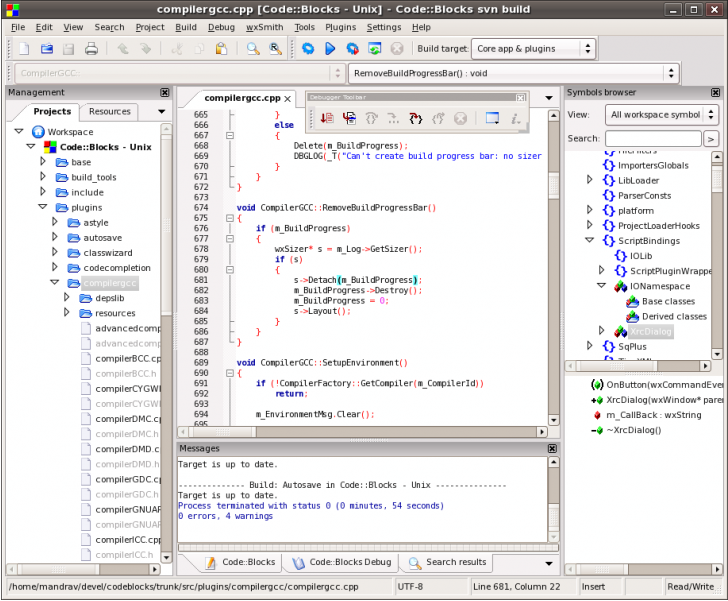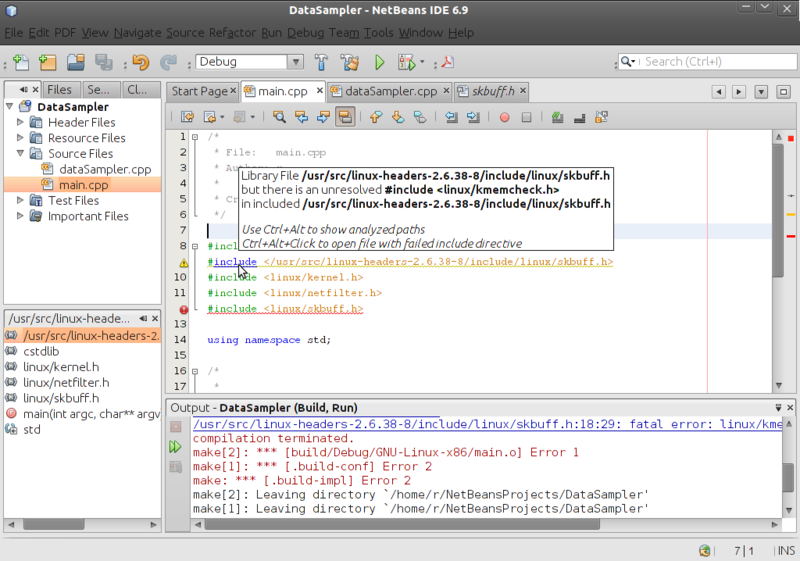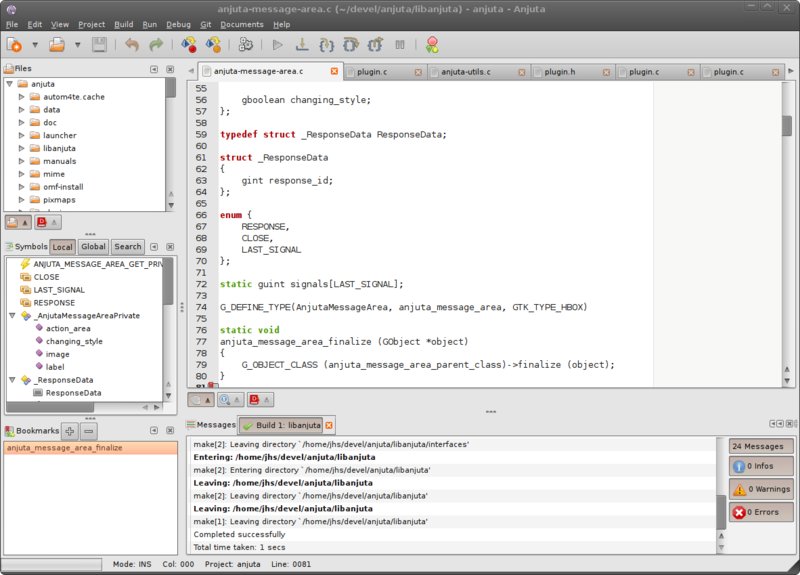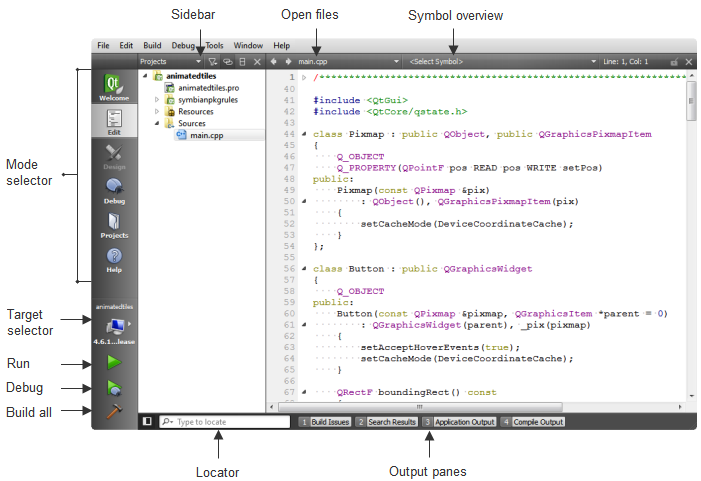C ++ Development Environments for Ubuntu
C ++ Development Environments for Ubuntu
When switching to Ubuntu, the first task was to find a convenient development environment.
Before the selection were the following candidates: Code :: Blocks, Netbeans, Eclipse, Anjuta.
Continued under the cut.
- First I would like to mention Code :: Blocks
Code :: Blocks is a six-year open source development environment.
Using the plug-in architecture, like Eclipse, here all the possibilities are provided by the plug-ins. Code :: Blocks is also C and C ++ oriented, making it an ideal candidate for working with this language.

')
I would like to highlight the + and - this environment and why the choice fell on him.
pros
- Support for most compilers, integrated task list, debugger, GUI and more.
- Free of charge;
- Easy interface;
- Ability to select and load various compilers;
- Many application templates for different libraries (wxWidjets, Ogre3D, Irrlicht, Opengl, SDL, etc.)
- Cross platform
Minuses
- - The rarity of official releases;
- - No error highlighting in the editor;
- - The complete lack of refactoring;
Now I use it.
- 2. Eclipse is one of the best tools available for Linux, Windows, and OS X. Born as an IBM Canada project in 2001, it became free software.

pros
- Free
- Plugins (incredibly many)
- Refactoring (not too cool, really)
- Automatic substitution of any identifiers
- Native Doxygen support
- Ability to debug via GDB
- Cross platform
An excellent framework for both novice programmers and masters. The ease of managing and adding modules makes it very practical. I also use it now.
- 3. NetBeans - a cross-platform IDE with support for multiple languages: Java, JavaScript, PHP, Python, Ruby, C, C ++, Scala, and many others.

pros
- Free of charge;
- Plugins;
- Refactoring;
- Auto substitution methods, classes;
- Ability to debug, including remote;
- Cross platform
Minuses
- Insufficient support for different types of assembly;
- Requires installation and connection of several compilers.
I worked in winXP, win7 for a long time in this environment, but after switching to Ubuntu I didn’t really want to understand all the tricks and plugins. At that time, a comfortable development environment was needed. But if not a lot of sitting and sorting out, then pretty good environment.
4.Anjuta is a development tool specifically for C and C ++. It is not cross-platform, but it integrates perfectly with the GNOME environment, and accordingly with Ubuntu.
Anjuta features: project manager, wizard, interactive debugger, code completion.

Easy to use and looks great on Ubuntu. Regular updates + the ability to immediately start writing code in C and C ++.
- 5. QtCreator - cross-platform free IDE for development in C, C ++ and QML.

pros
- Free of charge;
- Plugins;
- Refactoring;
- Debugging capability;
- Cross platform
Minuses
- Requires installation;
Unlike, say, KDevelop, Qt Creator as a standard project file does not invent a new format, but uses the pro file known to Qt programmers - the one that should be passed to the qmake utility. Special project settings related to the development environment itself are saved to a file that has the same name as the project, but with the addition of the word “user” at the end. Qt Creator is a powerful development environment. Despite all of the above, it is difficult to call this environment “mature” - it hurts so much, everything changes in it.
Each environment supports syntax highlighting.
If
Source: https://habr.com/ru/post/161217/
All Articles